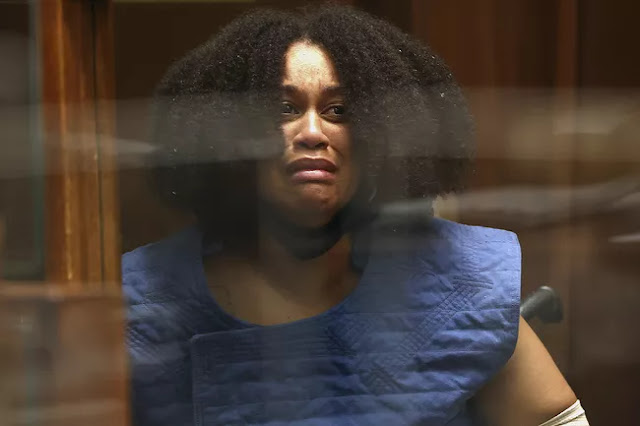Statue honors once-enslaved woman who won freedom in court
Statue honors once-enslaved woman who won freedom in court
The tale of the subjugated lady who went to court to win her opportunity over 80 years before the Emancipation Proclamation has been pushed to the edges of history.
A gathering of city pioneers, activists and students of history trust that closes Sunday in the tranquil Massachusetts town of Sheffield with the divulging of a bronze sculpture of the one who picked the name Elizabeth Freeman when she shed the chains of subjection a long time back to the day.
Her story, while striking, remains moderately dark.
State Rep. William "Smitty" Pignatelli grew up not a long way from Sheffield in the Berkshires of western Massachusetts at this point didn't hear her story until around quite a while back. He observed that a considerable lot of his partners in the Statehouse were likewise generally in obscurity about the meaning of her case, which set the lawful trend that basically finished subjugation in Massachusetts.
"She's obviously a secret figure in American history, and I truly accept Black history is American history," said Pignatelli, a Democrat. "Be that as it may, tragically, Black history is everything we haven't been said and educated."
The subjugated lady, known as Bett, couldn't peruse or compose, yet she tuned in.
Furthermore, what she heard didn't appear to be legit.
While she worked in subjugation in the family of Col. John Ashley, he and other unmistakable residents of Sheffield met to examine their complaints about British oppression. In 1773, they wrote in what are known as the Sheffield Resolves that "Humanity in a condition of nature are sans equivalent, and free of one another."
Those words were reverberated in Article 1 of the Massachusetts Constitution in 1780, which starts "All men are conceived free and approach, and have specific normal, fundamental, and unalienable privileges."
It is accepted that Bett, in the wake of hearing a public perusing of the constitution, strolled around 5 miles from the Ashley family to the home of lawyer Theodore Sedgwick, one of the residents who drafted the Sheffield Resolves, and requested that he address her in her legitimate mission for opportunity, said Paul O'Brien, leader of the Sheffield Historical Society.
Sedgwick and another lawyer, Tapping Reeve, took the case.
Ladies had restricted legitimate privileges in Massachusetts courts at that point, so a male slave in the Ashley family named Brom was added to the situation.
The jury concurred with the lawyers, liberating Bett and Brom on Aug. 21, 1781.
Previous Massachusetts Gov. Deval Patrick, and his better half, Diane, are occupants of the Berkshires and have been instrumental in raising money and authoritative endeavors. They are driving Sunday's service.
"What I love about the story is that this wonderful lady, subjugated, in some cases abused, unfit to peruse, listened cautiously to the discussion around the table as the men she was serving examined the ideas of life, freedom and the quest for satisfaction as 'natural privileges,'" Patrick, the state's most memorable Black lead representative, said in an email. "I love that this frail lady could envision these influential thoughts as her own, and could convince others to test that inquiry. Also, I love that the Massachusetts courts had the uprightness of direction to truly take her inquiry."
Pignatelli was enlivened to raise a sculpture of Freeman last year when he went to the divulging of a sculpture of Susan B. Anthony in Adams, the Berkshire County people group where the suffragist was conceived.
He united partners and raised about $280,000, enough cash for the approximately 8-foot sculpture, as well as a grant reserve in Freeman's distinction for region secondary school understudies.
Gwendolyn VanSant, the CEO of BRIDGE, a region charity that encourages racial comprehension and value, is directing the grants.
She called Freeman a symbol and a pioneer. "For me as an African American lady, it's astounding to stroll in her strides," she said.
After the legal dispute, Ashley requested that Freeman return to his family as a paid worker, yet she denied and on second thought went to work for Sedgwick, where she helped bring up his youngsters and was known by the tender name, Mumbet.
She was a healer, a medical caretaker and a maternity specialist, who got her own property in neighboring Stockbridge, VanSant said.
The Sedgwicks had such a profound regard for Mumbet that when she kicked the bucket in 1829 at about the age of 85 she was covered with them, the just non-relative in the family plot. Quite a bit of what students of history realize about her was composed by one of Theodore Sedgwick's little girls, the writer Catharine Maria Sedgwick, O'Brien said.
The sculpture, cast by prestigious artist Brian Hanlon, is being put on the property of the First Congregational Church in Sheffield, not a long way from the Sedgwick home.
"We couldn't say whether Elizabeth Freeman went to the congregation, however we realize Ashley did, and it was normal for enslavers to carry subjugated individuals to take care of their youngsters at chapel," said O'Brien.
Albeit around 200 individuals are supposed to go to Sunday's uncovering, the zenith of three days of festivities, coordinators have been not able to track down any of Freeman's relatives.
VanSant trusts an extremely durable dedication will prod interest into Freeman's story. "Perhaps her relatives will track down us," she said.




Comments
Post a Comment